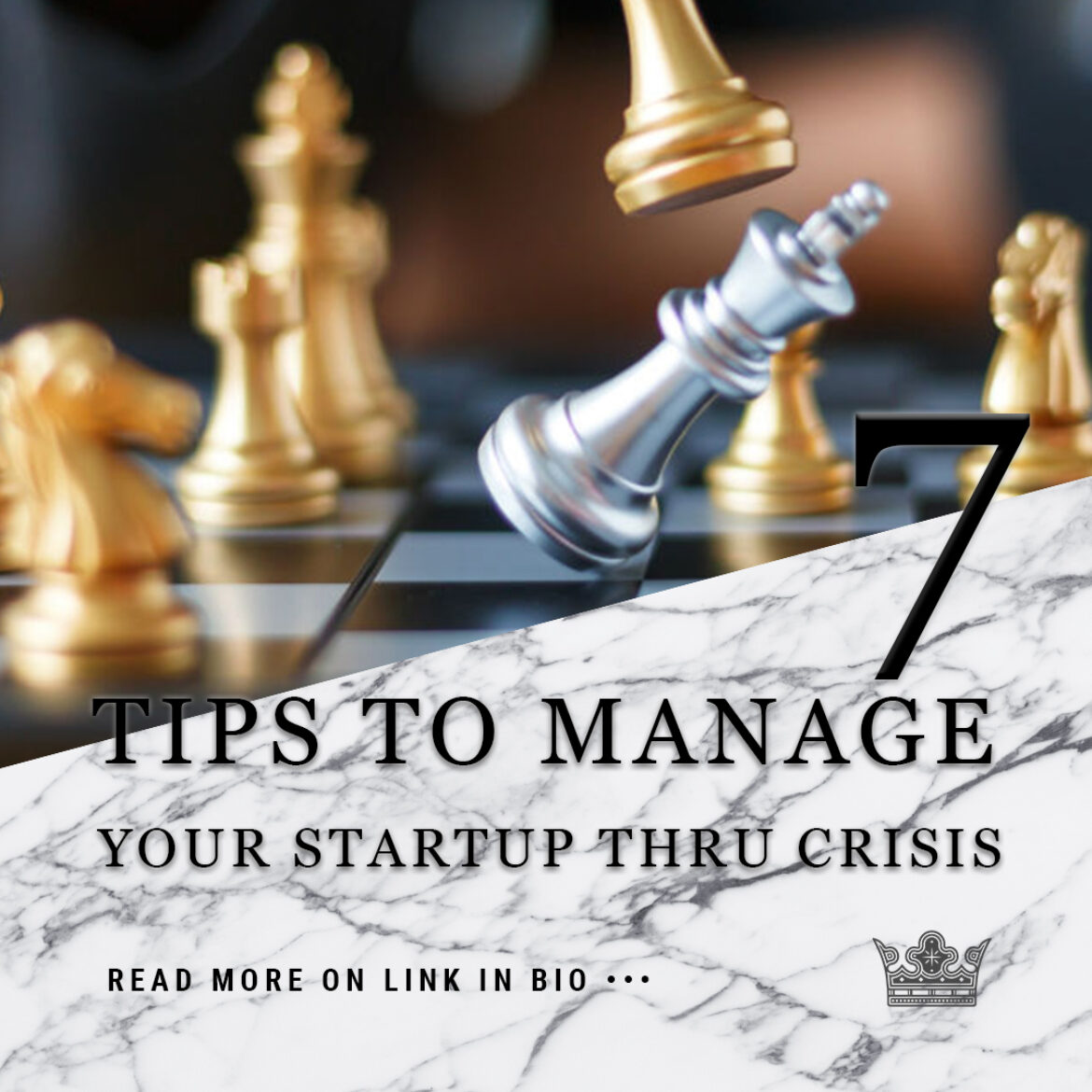1. TOSS THE PLAYBOOK, IT’S USELESS
When the economy is in flux and everyone is scrambling to adjust to an unexpected new situation, you need to question your assumptions about how businesses should operate. When so much is changing, the same rules do not apply. This is not something you can plan for, so you need to be nimble and open-minded.
“You have to be calm and think there is not always a playbook for it,” Davis said. “I saw there were at least 10 firsts in the last two months that this is a crisis like none other we have been through.” D’Ambrosio made a similar point, explaining how you need to approach everything differently in a crisis – like maybe giving away your product for free. “Throw the traditional business rules out,” he said. “If got into it just for the money, then it’s a bad plan.”
2. Look for the opportunity
While crisis can cause a lot of damage, it also creates a lot of opportunity as needs and priorities change. Sometimes, like during the COVID-19 crisis, these fluctuations are enormous as the habits of countless people change overnight and huge amounts of money and energy are redirected to new needs.
“A lot of things are up in the air right now,” Kahn said. “Things that are engrained are no longer so ingrained.” Brown offered the example of restaurants that used to only offer dine-in experiences. They are now quickly moving to take-out options and seeing revenues increase – not fall – as a result. “Now is the time to seize opportunities,” he said.
Davis experienced rapid change when launching Orabrush, an oral health device, by using YouTube when it was first exploding in popularity. “This crisis will force new habits and practices,” he said. The trick is to find out what new opportunities will arise in your industry and market.
3. Embrace your strengths
Now is the time to let your strengths shine. Some strengths are unique to your product or service, and some are unique to you and the individuals in your startup. Look hard at yourself and your company to find out what you do best. Then do more of it.
All startups have the advantage of being small. This often makes them much more flexible than a large company to adapt, change focus, or maybe even completely reimagine themselves if necessary to overcome the crisis. “Being an established business is a burden in these moments,” Brittain said.
Startups are often more comfortable with new technologies, and that can be a big benefit – like in the COVID-19 crisis, where the workplace has become virtual and moved online to comply with social distancing guidelines to avoid the spread of the coronavirus.
“The student entrepreneurs we work with are familiar with technology and working remotely,” D’Ambrosio said. “The current crisis is going to force this change.”
4. Accept uncertainty, and don’t worry too much
You might want answers immediately, but don’t expect that. You need to embrace uncertainty because no one has a crystal ball. “Timeframe is the toughest parts to know right now,” Brittain said. The sooner you get comfortable with this uncertainty, the sooner you with thrive.
Brown described himself as “the chief worrier,” but warned not to worry too much. Draw a line where it becomes unproductive. It’s helpful to know that a crisis can’t last forever, Brown said. Eventually, it will come to an end, and you want to be ready when it does.
“I have come to the conclusion that 95 percent of the things I’ve worried about in my life never occurred, and the five percent that did occur were never as bad as expected,” Brown said. “Take it from a worrier, it’s almost never as bad as it seems.”
Davis illustrated the same point with a famous quote from the Dali Lama: “If it can be solved, there is no need to worry, and if it can’t be solved, worry is of no use.”
5. Show your entrepreneurial grit
There’s no time like the present to demonstrate your entrepreneurial grit. Entrepreneurs are known for their endurance and ability to push through tough times to take advantage of the good ones. You will need these skills to survive the crisis and thrive through it.
Resourcefulness is one quality of entrepreneurial grit that you will need. While others panic to maintain the status quo, you need to need to find opportunities where they didn’t exist before.
Take hiring, for example. During a crisis, unemployment can be high, and this can be a great opportunity to hire engineers and other staff that would not have been available before, Price said. He experienced this when building a technology company during the Great Recession. “You need to grab talent,” he said.
6. Focus, focus, focus
If you thought focus was important before the crisis, you haven’t seen anything yet. During a crisis, the volume of questions and demands explodes. You are likely to be faced with questions about budget, supplies, marketing, and much more. To find focus, think about what you and your company do best. You need to be laser-focused on that and not stray away.
Davis has seen this firsthand as he helps manage a startup during the COVID-19 crisis. “My to-do list has tripled in the last few days,” he said. “I’m trying to focus on what is most relevant.”
Now is not the time to do what others are doing. Look at what you are uniquely positioned to do well. “Resist the temptation to mimic what others are doing,” Brown said. “Stay true to what you do. Double down on your competitive strengths.”
When you find your strengths, invest in them to the greatest extent possible. In addition to looking for new hiring opportunities, ramp up your sales and marketing efforts. That will allow you to capture changing consumer demands. And you may be able to take advantage of lower advertising costs, as others reduce their marketing.
7. Accelerate through the curve
Like a racecar driver, you need to accelerate through the curve. Your tires can do one of two things – roll or stop – and you want to be rolling forward as quickly as possible. “Racecar drivers brake as they enter a turn; then they accelerate into the turn and are flying coming out,” Davis said, quoting a friend and former CEO of Logitech, Bracken Darrell. This can be very tricky to navigate while avoiding a crash, but it’s worth the effort.
The worst thing you could do is stand still, Kahn said. This is a time to move. Indecision is much worse than making a wrong decision. Keep making decisions and moving forward. “There is no such thing as a wrong decision,” Kahn said.
Another useful metaphor is turning a bike. It’s much easier to turn a bike that is in motion, Price said. So, you need to keep moving forward to stay nimble, adapt, and take advantage of new opportunities.
If other companies are stepping on the brakes or standing still, do the opposite. Brittain concluded, “When everybody is stepping on the brakes, entrepreneurs step on the gas.”
Source: Thad Kelling, Lassonde Entrepreneur Institute
Link: https://lassonde.utah.edu/7-tips-to-manage-your-startup-through-a-crisis/





